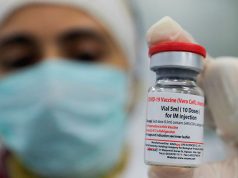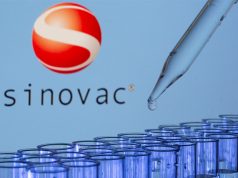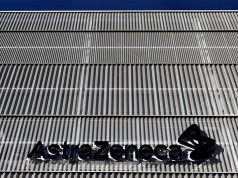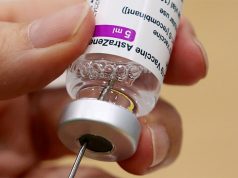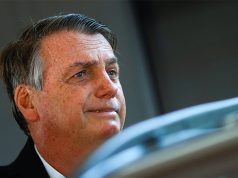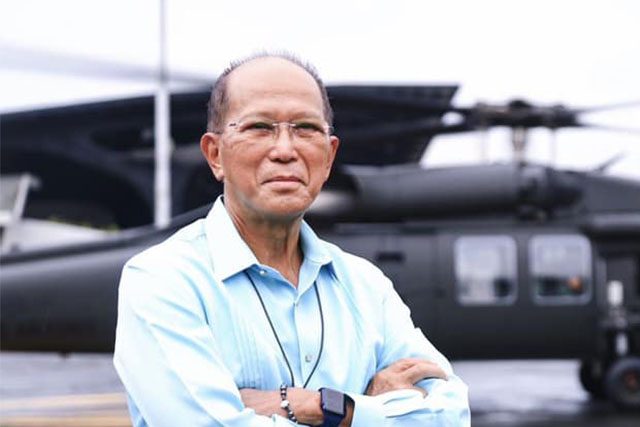
Defense Secretary Delfin Lorenzana rolled up his sleeve during the vaccination rollout of China’s Sinovac COVID-19 vaccines in Davao City last Friday but it fueled concerns after admitting that it was just for “photo ops.”
The defense chief, along with other high-ranking government officials, attended the rollout of the CoronaVac, Sinovac’s COVID-19 vaccine, at the Southern Philippines Medical Center (SPMC) where he was pictured supposedly receiving a jab.
A photographer from a local news outlet was able to capture the moment which was eventually revealed to be just for show.
“Photo ops lang,” Lorenzana rold the reporters in a Viber message, referring to photo opportunity.
Health Secretary Francisco Duque III, who was among those present in the Sinovac jab rollout last Friday, echoed his words.
“No, not true, according to him [Lorenzana]. No record of him or Sec. Bello getting vaccinated,” Duque was quoted as saying.
Other officials who were in attendance at SPMC were Duterte’s spokesperson, vaccine czar Secretary Carlito Galvez Jr., Labor Secretary Silvestre Bello III, presidential chief legal counsel Salvador Panelo and Agriculture Secretary William Dar.
Lorenzana previously said that he “volunteered to be among the first to be vaccinated” to supposedly be an “example” to his personnel but added that his old age had impeded him so.
He is 72 years old.
Apart from the defense chief, Duque and President Rodrigo Duterte wouldn’t be vaccinated with Sinovac for the same reason.
RELATED: Juxtaposed: Duterte’s arrival time during AstraZeneca, Sinovac COVID-19 vaccine turnover ceremonies
The Palace said that the chief executive preferred to be inoculated with Sinopharm, the same vaccine that his close-in security personnel received without authorization.
The Food and Drug Administration initially said that it does not recommend healthcare workers and the elderly—specifically those 60-year-old and above—to take Sinovac due to its varying levels of efficacy.
It later clarified that medical frontliners are not prohibited from taking it.
FDA said that it might expand its age group recommendation for Sinovac once “enough clinical trial data for 60 [years old] and above” would be available.
Its Phase 3 clinical trial results are not yet publicly known but according to an infectious disease expert, official data is kept under wraps due to a confidentiality agreement.
RELATED: Sinovac skepticism: Philippines’ confidentiality deal bars public scrutiny of trial data
‘Trust issues’
Following Lorenzana’s remarks about being supposedly jabbed with Sinovac for “photo ops,” the issue of vaccine distrust once again surfaced among online Filipinos.
“Goodbye vaccine confidence,” a Twitter user said in response to the reports.
“And you wonder why we have trust issues,” another online user wrote.
“And some people are wondering why people are hesitant to get vaccinated..” a different Filipino likewise commented in response to Lorenzana’s admittance.
When the FDA announced that it does not recommend Sinovac to the medical frontliners, similar questions were raised about vaccine distrust.
Late-stage trials in Indonesia showed that its CoronaVac has an efficacy rate of 65.3% while a study conducted in Turkey showed that it has an efficacy rate of 91.25%. Both were conducted as community trials.
A trial in Brazil, meanwhile, showed that the COVID-19 vaccine has an efficacy rate of 50.4%, which was just above the threshold that the World Health Organization uses to determine if the vaccine is worth using. It is also the trial that involved healthcare workers exposed to the virus.
The Department of Health cited that the researchers at the Butantan Institute found Sinovac to be “100% effective in staving off moderate to severe cases.”
Last January, a nationwide survey by Pulse Asia revealed that only 32% of 2,400 respondents were willing to be inoculated with the COVID-19 vaccine despite the prevailing threat of the virus.
Some perceived the hesitancy as a reflection of the public’s lack of trust in the government’s handling of the vaccination as a public policy.
Others blamed Persida Acosta, chief of the Public Attorney’s Office, for supposedly sowing vaccine fears due to the Dengvaxia controversy where she blamed the anti-dengue vaccine for some children’s deaths.





